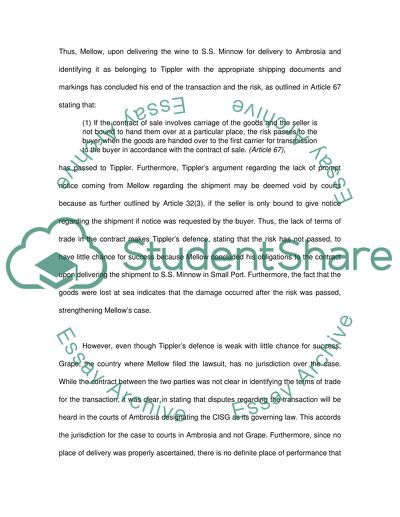Cite this document
(“International Business Law College Essay Example | Topics and Well Written Essays - 3250 words”, n.d.)
Retrieved from https://studentshare.org/law/1514228-international-business-law-college-essay
Retrieved from https://studentshare.org/law/1514228-international-business-law-college-essay
(International Business Law College Essay Example | Topics and Well Written Essays - 3250 Words)
https://studentshare.org/law/1514228-international-business-law-college-essay.
https://studentshare.org/law/1514228-international-business-law-college-essay.
“International Business Law College Essay Example | Topics and Well Written Essays - 3250 Words”, n.d. https://studentshare.org/law/1514228-international-business-law-college-essay.


